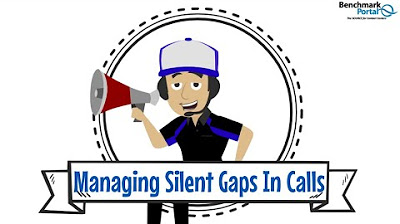Tone of Voice | Online Call Center Agent Soft Skills Part 4
Summary
TLDRThis video highlights the critical role of tone of voice for contact center agents, especially in phone interactions where visual cues are absent. It explains that tone—shaped by pitch, pacing, volume, emphasis, and pauses—conveys far more than words alone, influencing how customers perceive and remember conversations. The video provides practical tips, such as maintaining a positive mindset, adapting to the caller's emotional state, and practicing to replace habitual speaking patterns with engaging, professional tones. By mastering tone of voice, agents can improve customer experiences, make calls more effective, and leave a lasting positive impression.
Takeaways
- 😀 Tone of voice is one of the most important skills a contact center agent can have.
- 🎧 On phone calls, 70% of communication comes from tone of voice alone, not words.
- 📊 Facial expressions and body language are absent in phone conversations, making vocal tone critical.
- 🎵 Tone of voice has five key elements: pitch, pacing, volume, emphasis, and pauses.
- 🔄 Varying these tone elements makes conversations more engaging and understandable.
- 🗣️ The same words can convey entirely different meanings depending on how they are spoken.
- 💡 Emotional mindset affects how your tone is perceived; attitude can make calls great or difficult.
- 🛑 Leave personal emotions at the door; don't let prior calls affect the next caller.
- 🤝 Adjust your tone to the caller's emotional state: calm and professional for anger, gentle and understanding for sadness.
- 🏋️ Tone of voice is a skill that requires consistent practice to replace undesirable habits with effective communication.
- 💭 People may forget your words, but they never forget how you made them feel.
- 📌 Conscious awareness and deliberate adjustments to tone can improve customer satisfaction and call outcomes.
Q & A
Why is tone of voice particularly important in contact center communication?
-Tone of voice is critical because phone interactions lack visual cues like facial expressions and body language, meaning that up to 70% of communication relies on tone rather than words.
What percentage of spoken communication comes from actual words versus tone and visual cues?
-Only 7% of communication comes from actual words, while the remaining 93% comes from tone of voice and visual cues. On the phone, where visual cues are absent, tone accounts for approximately 70% of communication.
How can pitch, pacing, volume, emphasis, and pauses affect a conversation?
-Varying these elements can make conversations more engaging and understandable, while monotone delivery can make the speaker sound boring or disinterested.
What is an example of how changing emphasis can alter meaning in a sentence?
-The sentence 'I never said she stole the money' can have entirely different meanings depending on which word is emphasized, demonstrating how pitch, volume, and emphasis shape perception.
How does emotional mindset influence communication over the phone?
-Your attitude and feelings affect how your words are perceived. Even if your words are correct, a negative or unprofessional emotional state can make the conversation unpleasant for the caller.
What should an agent do after handling a difficult call to maintain a positive tone?
-Agents should consciously leave their emotions from the previous call behind to ensure the next caller receives a professional, calm, and positive experience.
How should an agent adjust their tone when dealing with angry or emotional callers?
-Agents should be calm, professional, and understanding—using a gentle and empathetic tone when callers are sad or emotional, and remaining composed with angry callers.
Why is practicing tone of voice important for contact center agents?
-Tone of voice is a skill that develops over time. Regular practice helps remove undesirable habits, improve engagement, and ensure clarity in communication.
What are the 'five elements of tone' mentioned in the script?
-The five elements are pitch, pacing, volume, emphasis, and pauses. Using them effectively can make conversations more interesting, clear, and engaging.
What is the key takeaway regarding how callers remember interactions?
-Callers may not always remember the exact words spoken, but they never forget how the interaction made them feel, highlighting the importance of tone and emotional mindset.
Outlines

このセクションは有料ユーザー限定です。 アクセスするには、アップグレードをお願いします。
今すぐアップグレードMindmap

このセクションは有料ユーザー限定です。 アクセスするには、アップグレードをお願いします。
今すぐアップグレードKeywords

このセクションは有料ユーザー限定です。 アクセスするには、アップグレードをお願いします。
今すぐアップグレードHighlights

このセクションは有料ユーザー限定です。 アクセスするには、アップグレードをお願いします。
今すぐアップグレードTranscripts

このセクションは有料ユーザー限定です。 アクセスするには、アップグレードをお願いします。
今すぐアップグレード関連動画をさらに表示

Non-verbal Communication, it's types, & Importance #education

CROSS CULTURAL UNDERSTANDING_GROUP VIRGO

The psychology of communicating effectively in a digital world | Helen Morris-Brown | TEDxSquareMile

Managing Silent Gaps In Calls | Online Call Center Agent Soft Skills Part 19

la comunicazione non verbale-i gesti e lo sguardo

14 tanda seseorang tertarik pada kita menurut psikologi
5.0 / 5 (0 votes)
